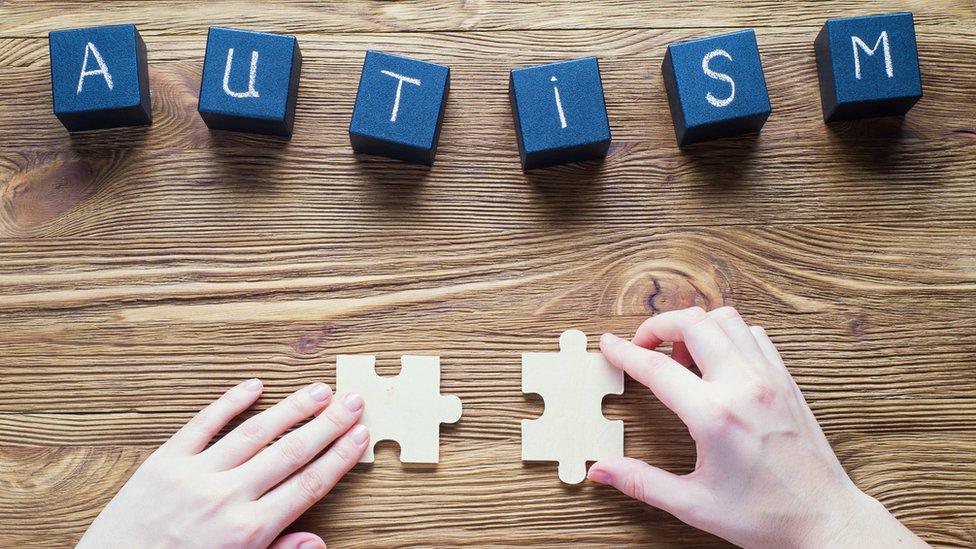Why I can't stand people clapping
- Published
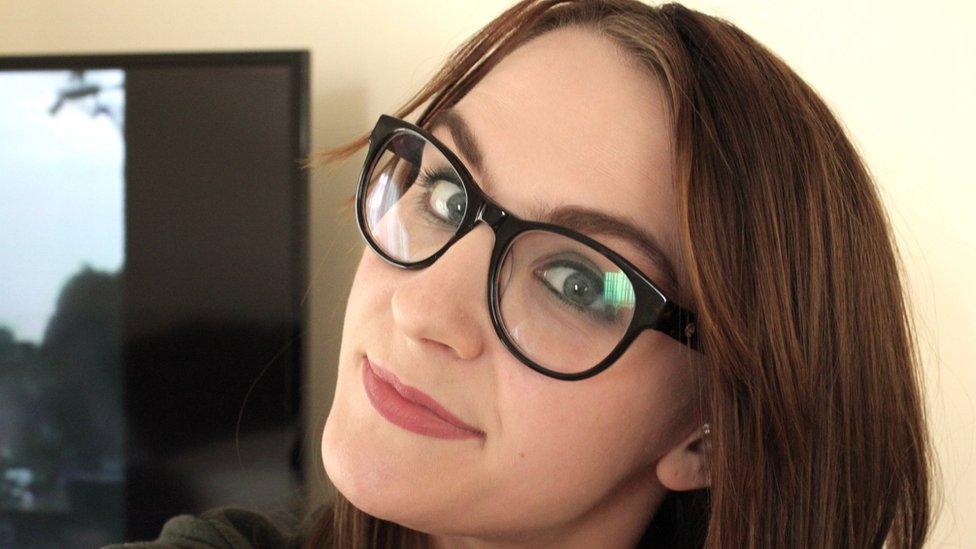
"I've given up explaining to people, because they just don't get it," Hannah Molesworth says.
The 26-year-old is autistic which means she struggles to be around people when they're clapping.
"Sometimes I literally just freeze up and I'll just sit there and get more overwhelmed until I end up crying, have a meltdown or run away.
"I'll have a panic attack, feel cold and my vision goes into tunnel vision."
The students' union at the University of Manchester has recently voted to ditch clapping, whooping and cheering in favour of "jazz hands".
Union officer Sara Khan said traditional clapping can cause issues for students with autism, sensory issues or deafness.
SU access officer Sara Khan demonstrates British Sign Language applause
Hannah's struggled with loud noises like clapping her whole life but wasn't diagnosed with autism until she was 23.
The condition affects a person's social interaction, communication, interests and behaviour.
"It's almost like when you have a cold or flu or a headache and everything in your head sounds really loud. That's my reality all the time," she tells Radio 1 Newsbeat.
"When I was at school, during assemblies and awards and things, it felt like people would just clap all the time. It would get so overstimulating for me. Especially in a big echoey room.
"The biggest thing is sporting events. When the World Cup was on in pubs I couldn't handle it."
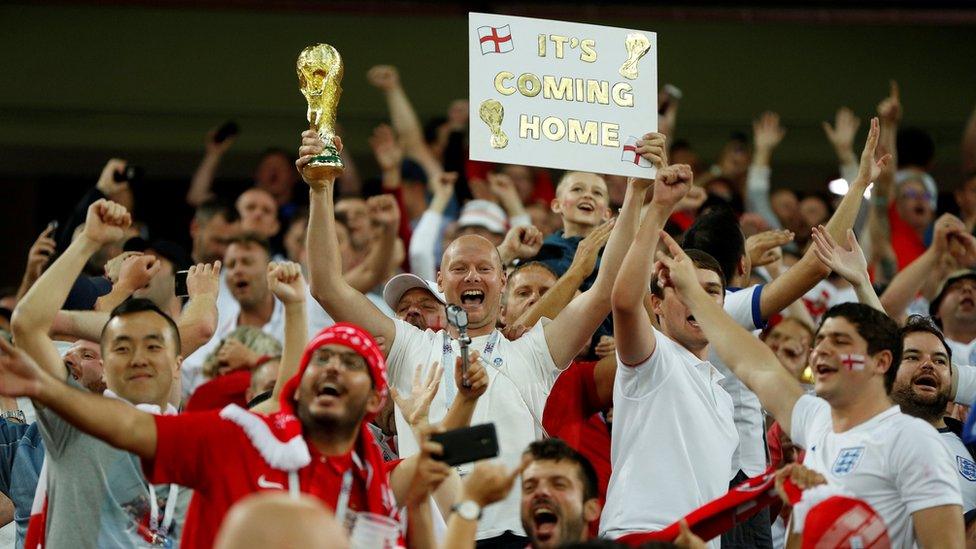
Hannah says her condition means she struggled during the World Cup
But Hannah, from Weymouth, Dorset, doesn't agree with a ban on clapping.
Instead she believes the students' union should be putting more effort into raising awareness of autistic people.
"This would not only educate everyone about what to do if someone like me has a meltdown, but also help autistic people feel more accepted.
"You can ban loud noise in one scenario but as soon as you're out of campus you could encounter a loud noise and therefore it's a bit pointless."
She also says it could "breed resentment" if other students start to harbour bad feelings towards autistic people.
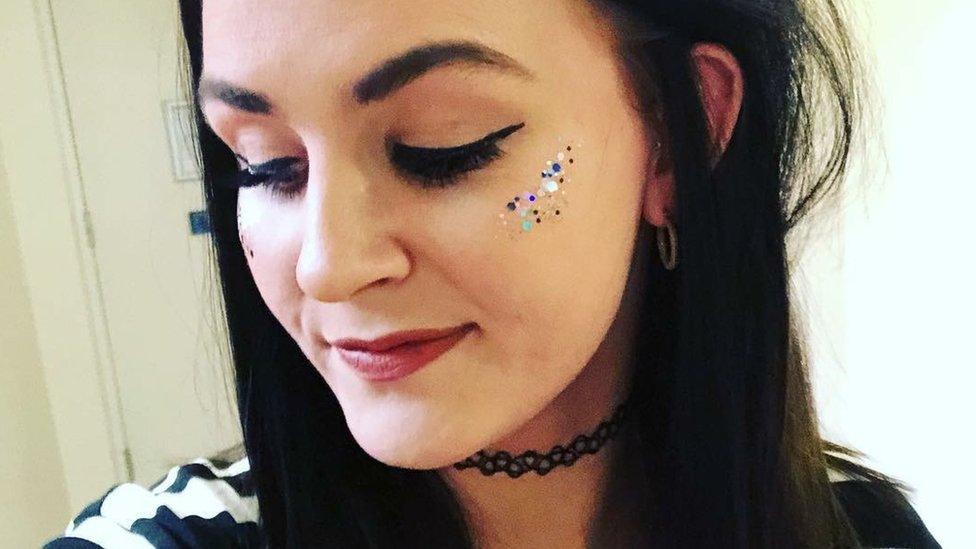
Hannah works as an optical dispenser and part-time model
"The thing with loud noises is, if I'm prepared for them I can cope with them because I'm expecting them.
"When I get most nervous is when I'm not expecting them so my body just goes into fight or flight mode. I just get completely over stimulated and I find it hard to process what's going on."
Hannah says autism means she struggles in social situations and doesn't have many friends.
But she says she's connected with other people who are autistic online - which has been a great support.
Follow Newsbeat on Instagram, external, Facebook, external and Twitter, external.
Listen to Newsbeat live at 12:45 and 17:45 every weekday on BBC Radio 1 and 1Xtra - if you miss us you can listen back here.
- Published2 October 2018

- Published26 September 2018
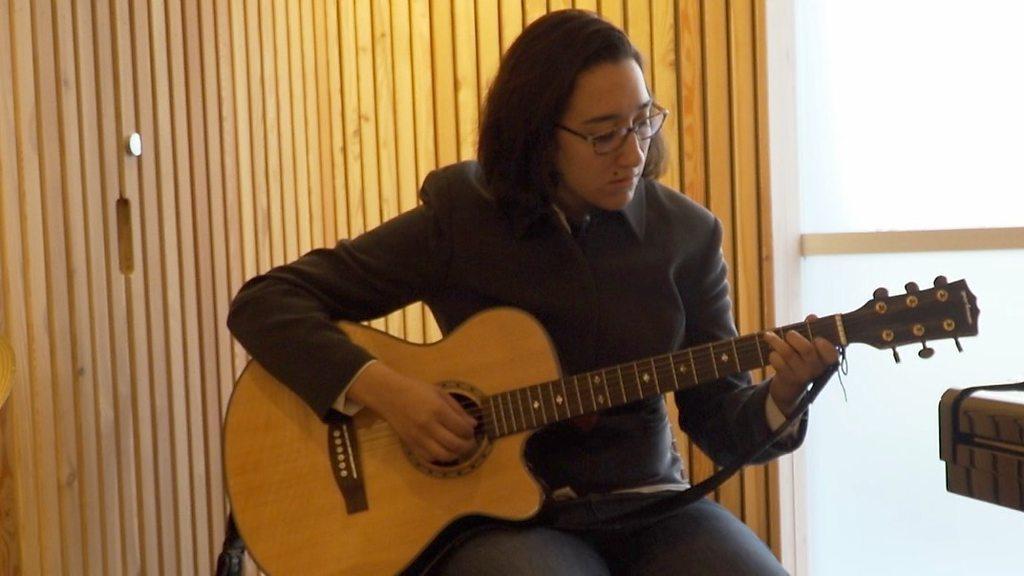
- Published16 August 2018
